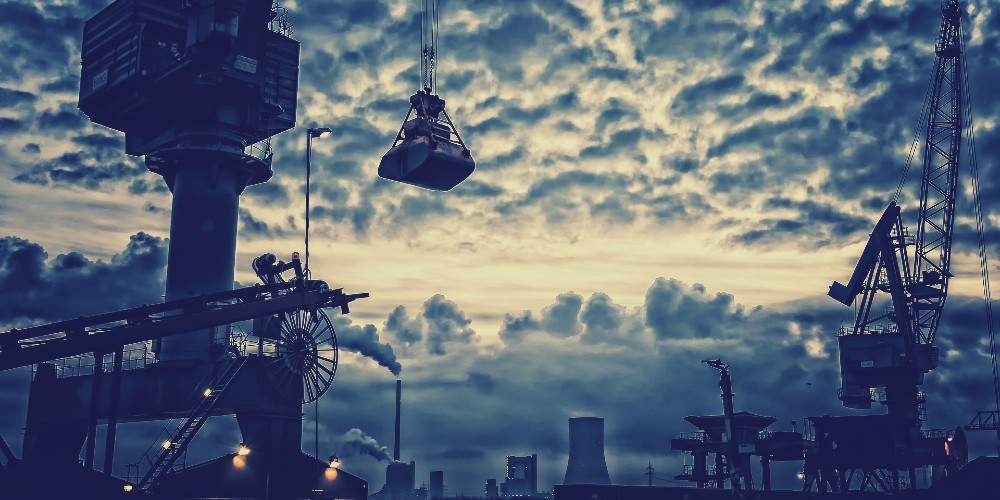The ratio of crude tanker capacity currently on order to crude tanker capacity currently in service has plummeted to an all-time low of just 2.7 percent, this due to pressures from the global warming crowd to “decarbonize” the shipping industry.
Because the writing is on the wall concerning the use of earth-based fuels like oil and gasoline – the climate change brigade wants these made obsolete – the owners of tankers that use such products are holding out on ordering new ships until it becomes clear the direction the “clean” energy industry is going to take.
“To decarbonize shipping, you either need an onboard carbon-capture system (which doesn’t exist yet) or to build new vessels that burn something other than fuel oil,” reported Greg Miller, writing for Freight Waves.
“The regulations on this new fuel haven’t been written yet. So, why would tanker owners in the business of making money accept the residual-value risk of ordering ships that could be prematurely obsolete after the rules are written? … The answer is: They haven’t and they won’t. There is now a historically low number of crude and product tankers on order.”
(Related: Check out our earlier coverage about the dismal state of the American food supply chain due to covid.)
Between climate hysteria and the residual fallout from covid, global shipping and supply chains are screeching to a halt
The situation is almost as severe on the product tanker side, the orderbook-to-fleet ratio of which has cratered to just 6.1 percent. And once again, it is because nobody wants to order new ships that rely on fuel technologies that are slated for tougher regulations.
“We are now seeing what happens when you go several years without investing [in new capacity],” said Jefferies analyst Omar Nokta about the dire situation.
Crude and product tanker owners only just recently started making money again after several dismal years of covid-induced supply chain failures, with 2020 and 2021 being the two worst years for the industry in 30 years.
“There is a two- to three-year lag between when an order is placed and when a new tanker is delivered,” Miller further explained about how the industry typically works. “These assets last 20-25 years. Thus, a newbuild ordered today will likely be in service in 2050.”
“If the world is actually decarbonizing and shifting away from consumption of dirty fossil fuels, what are tankers ordered today going to carry in the latter years of their life spans?”
The answer, of course, is that they will potentially carry nothing, hence why nobody is placing any new orders. In essence, the global shipping industry appears to be screeching to a halt, both due to climate hysteria and covid hysteria, which together have decimated both the tanker industry and global supply chains at large.
According to Bob Burke, CEO of Ridgebury Tankers, the overall lack of tank orders has nothing to do with capital discipline, which does not even exist in a market like this.
“It’s just not in our own best interest to order expensive ships with uncertainty over propulsion systems,” he said.
“For a ship that will be delivered two and a half years from now, at historically high prices, with a capital drag until delivery and when you don’t know whether the propulsion system is going to last very long, it is really hard for a shipowner to go out and take a flier on something like that without a charter from an oil company.”
The only people currently placing orders for new tankers either have some kind of tax incentive to do so or they are receiving backing from a longer-term charter, “typically for a dual-fuel design,” added Maersk Tankers CEO Christian Ingerslev.
“Otherwise, there’s nothing being ordered.”
More related news can be found at GreenTyranny.news.
Sources for this article include:
Don’t just survive — THRIVE! Prepper All-Naturals has freeze-dried steaks for long-term storage. Don’t wait for food shortages to get worse. Stock up today. Use promo code “jdr” at checkout for 25% off!
It’s becoming increasingly clear that fiat currencies across the globe, including the U.S. Dollar, are under attack. Paper money is losing its value, translating into insane inflation and less value in our life’s savings.
Genesis Gold Group believes physical precious metals are an amazing option for those seeking to move their wealth or retirement to higher ground. Whether Central Bank Digital Currencies replace current fiat currencies or not, precious metals are poised to retain or even increase in value. This is why central banks and mega-asset managers like BlackRock are moving much of their holdings to precious metals.
As a Christian company, Genesis Gold Group has maintained a perfect 5 out of 5 rating with the Better Business Bureau. Their faith-driven values allow them to help Americans protect their life’s savings without the gimmicks used by most precious metals companies. Reach out to them today to see how they can streamline the rollover or transfer of your current and previous retirement accounts.


